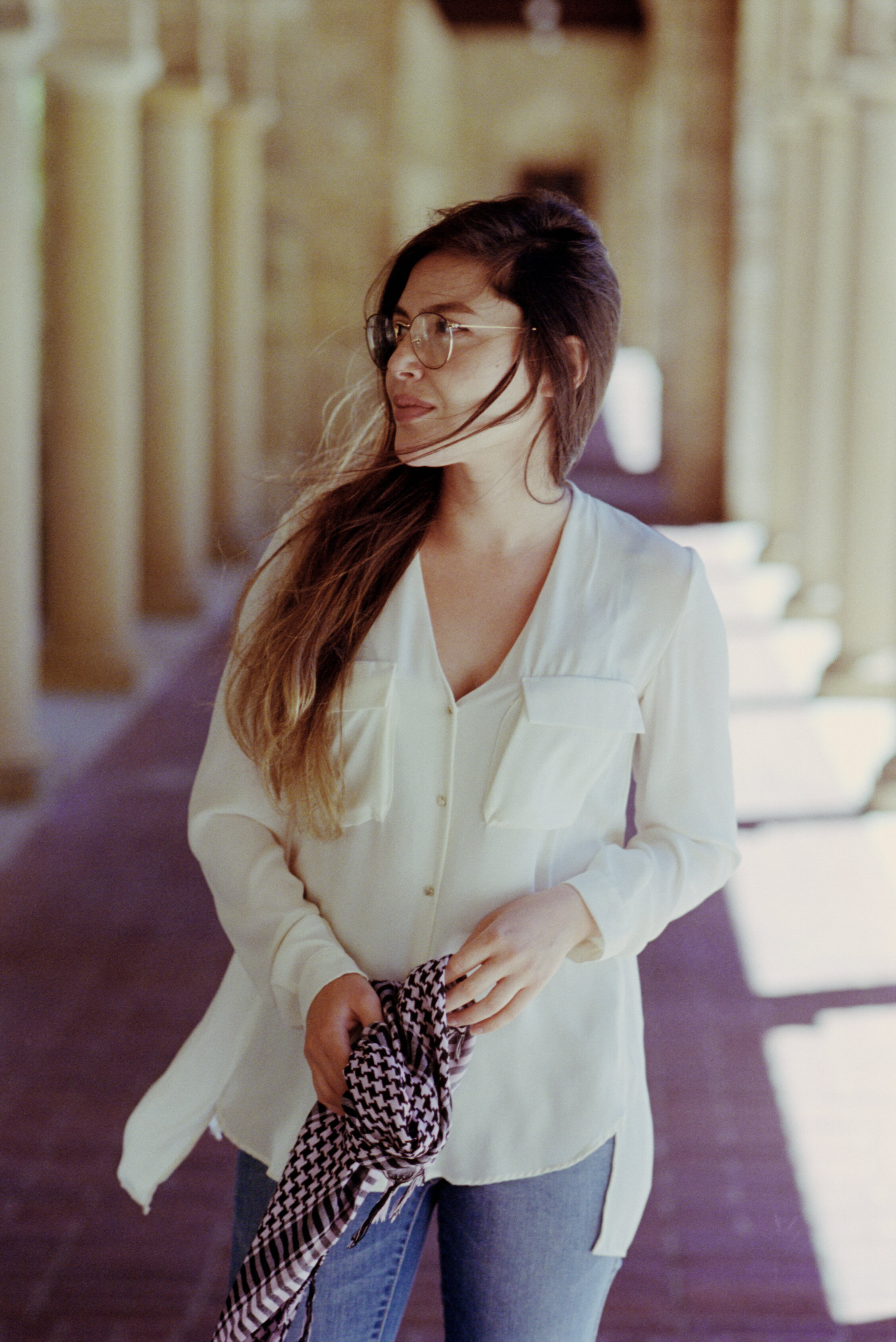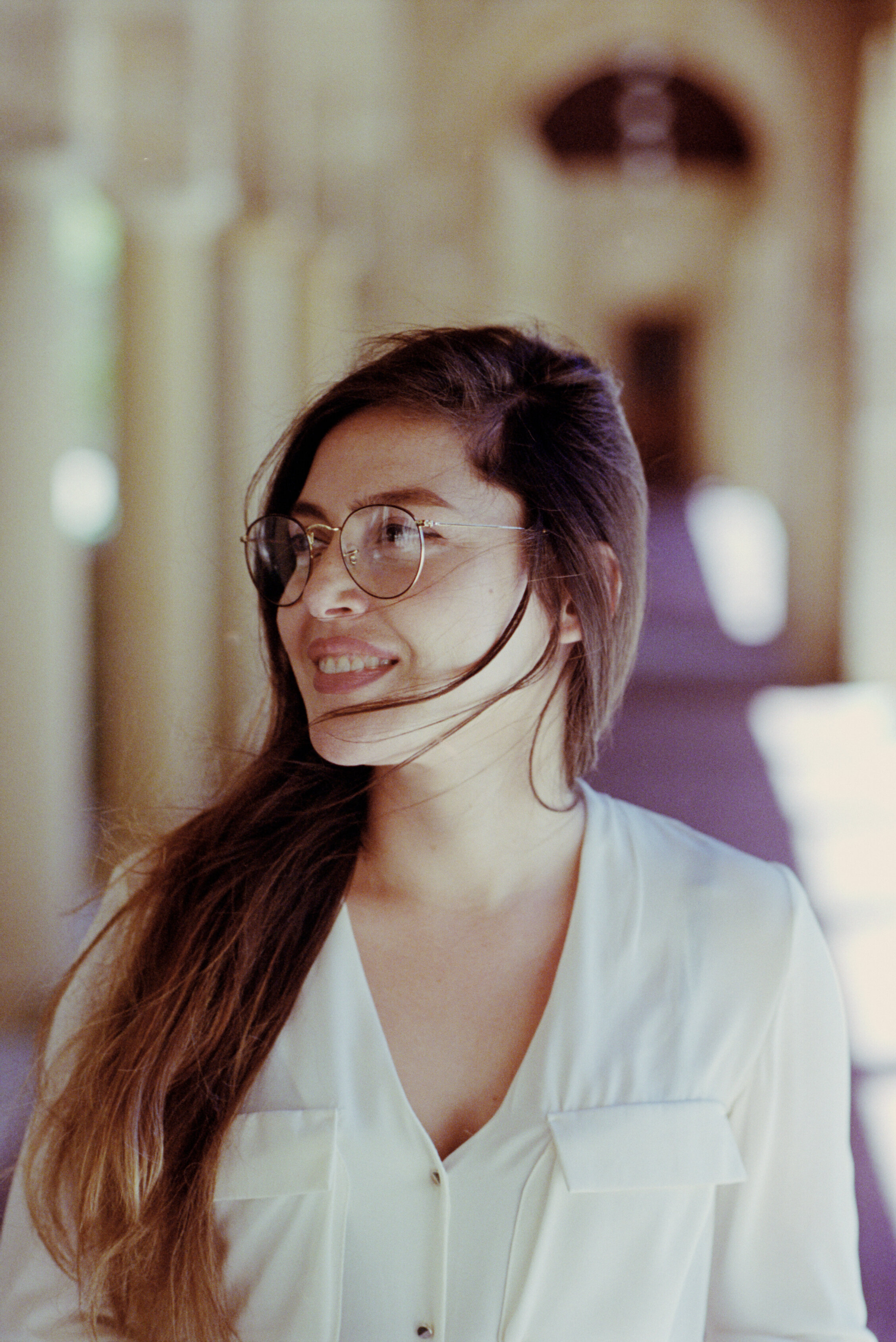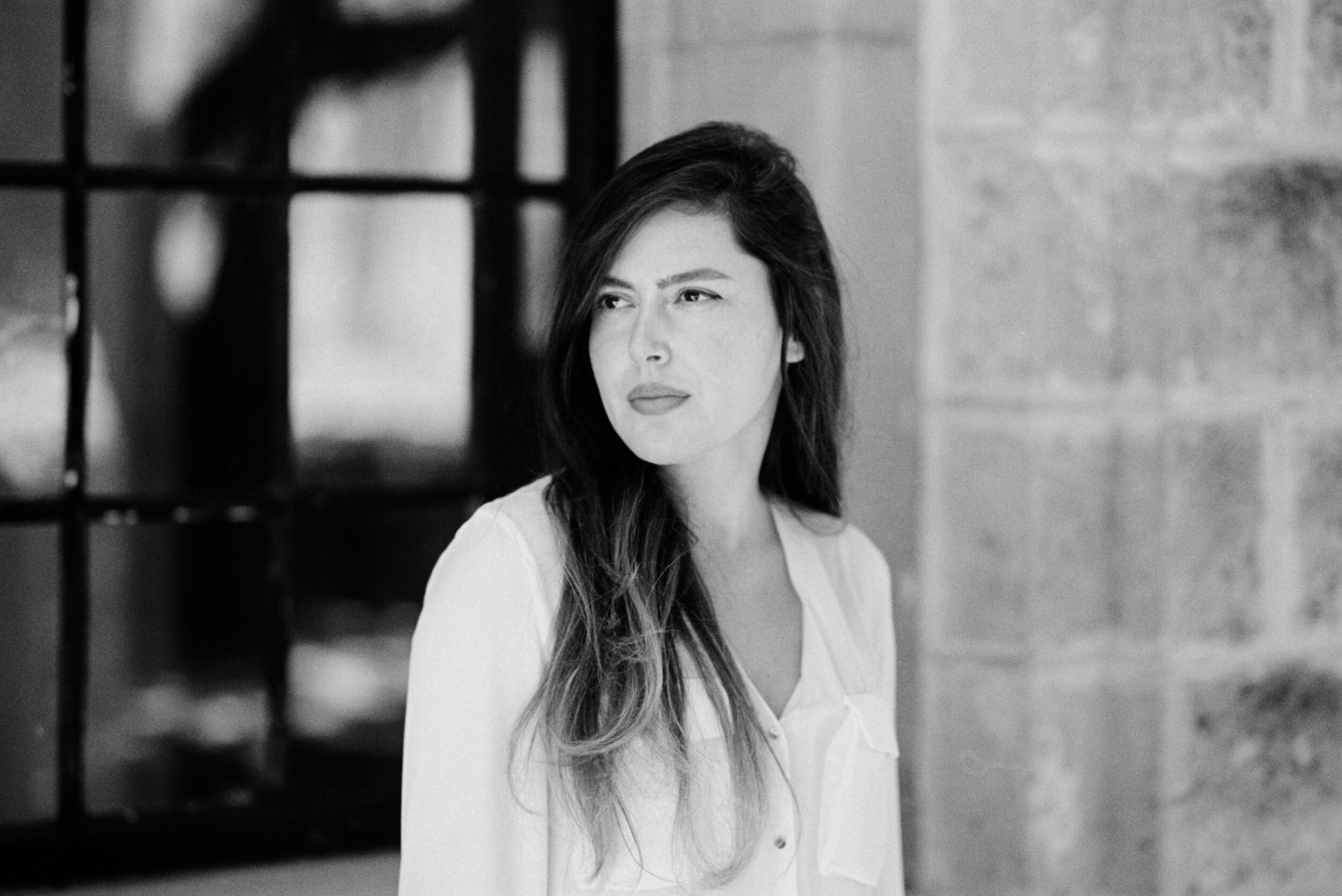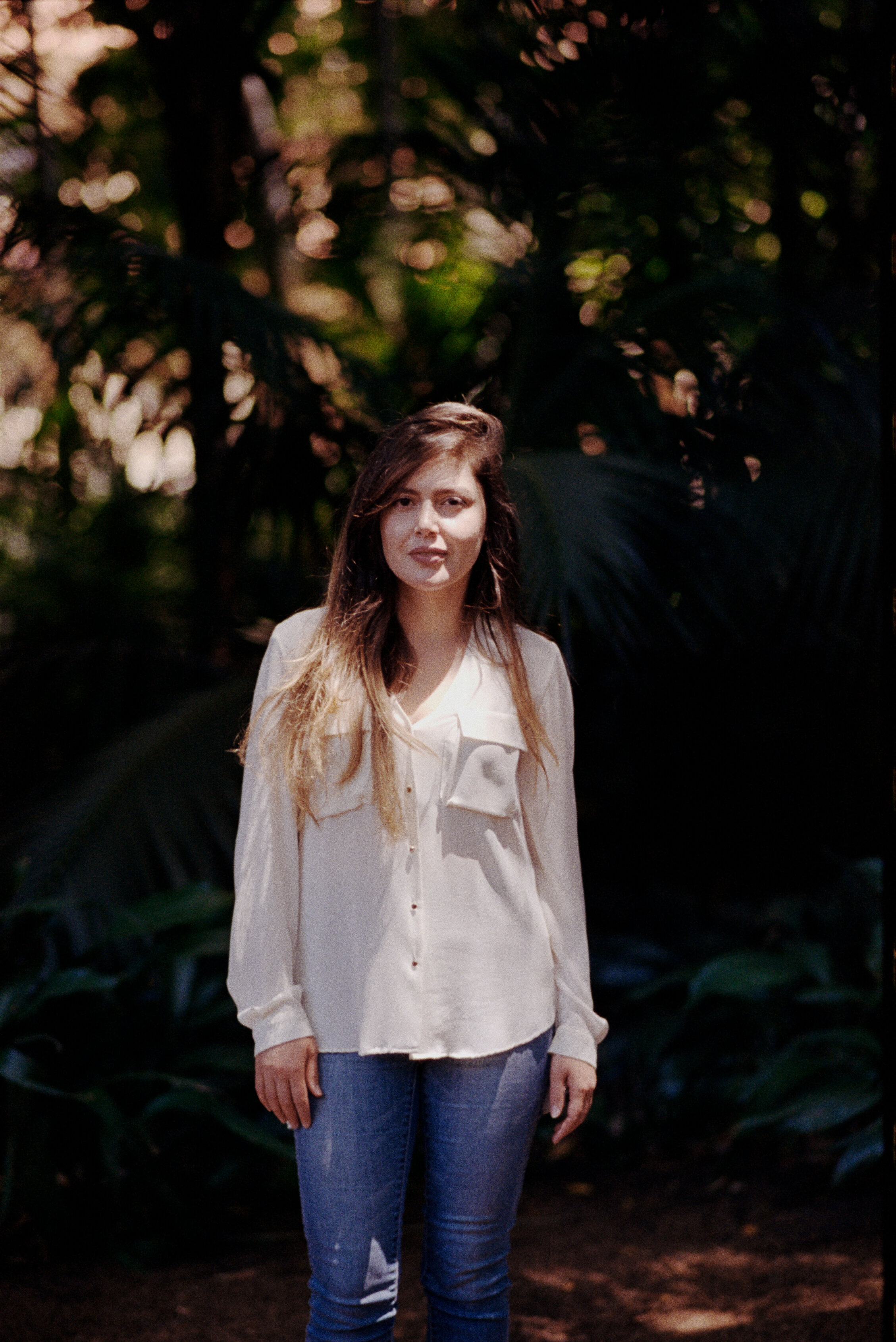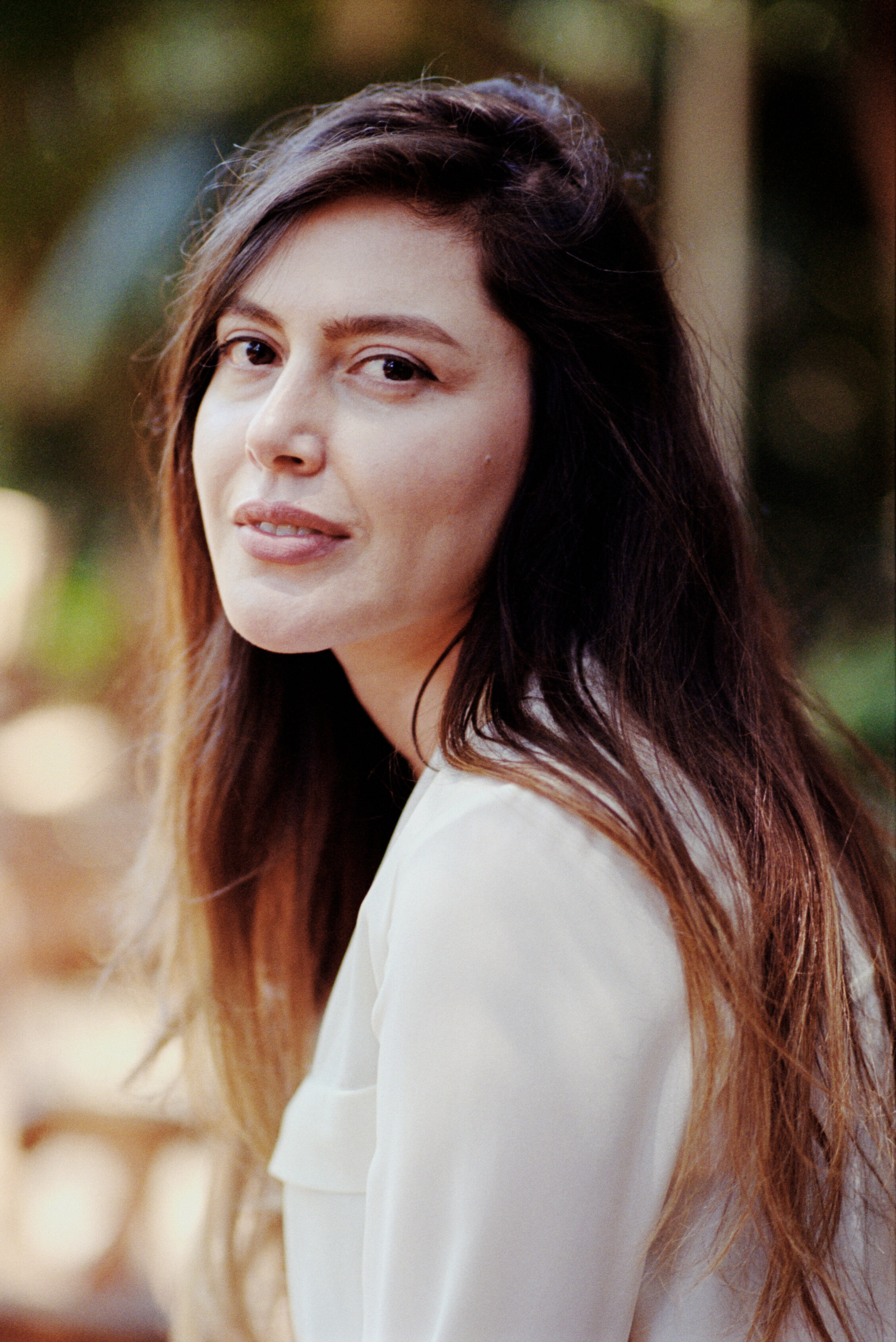Interview #161 — Elham Mohammadnejad
by Robert Wood
Elham Mohammadnejad is an Iranian-Australian writer and photographer. She holds a masters in political science and is currently studying a masters in International Law at the University of Western Australia. She has published in Singapore Review of Books and LA Review of Books.
Elham spoke to Robert Wood about stories, myths, and home.
Tell us about growing up in Iran.
One of my Iranian friends once coined a word in one of his poems that best describes my feeling about being raised in Iran. The word is ‘Khanduhnaak’, which basically is the amalgamation of ‘fright’ and ‘smile’. Iran is a very diverse society, but political forces have forged a sort of dualism. As I was born during the Iran-Iraq war (1980-1988), my first memory goes back to a time right after the end of war when some parts of our city were reduced to rubble. One day sitting on my dad’s shoulders, I saw heaps of rubble, but while turning my head my eyes caught the shimmering sight of the Jarrahi river. It was a striking contrast that lingered in my mind. Maybe the mischievous world wanted to give me some hints about the reality. Growing up, I’ve tracked similar contrasts everywhere. Living in an oil city, sharply divided to two parts where, on one side, the beauty of things pierce your eyes, while on the other side, despite working dusk to dawn, people barely scraped by. This also applied to social interactions. Out of fear of being persecuted by government, there was a distinct line between public and private. People talked and acted differently in these two spheres, often shockingly different. There is not doubt they had every right to do so, but back then and as a kid it was baffling to see. Whenever I tried to replicate the adults’ behaviour, it happened to become amusingly unharmonious. But it is also true that growing up I had so much fun with these aspects of living in Iran. It fulfilled my sense of curiosity and nourished my imagination.
What did you read growing up? What stories did you hear in your community?
In the community it was mostly folktales about bravery and love that circulated. But in our household and before becoming an obsessive reader, I was mostly exposed to poems. My dad has this immeasurable love for Iranian poems and our house was the dominant realm of them from classics like Hafez and Khayyam to his favorite modern poet Forough Farokhzad. He recited the poems and I was fascinated by the sounds and rhythm of words. I recall a time when, fearful of the government searching houses, he dropped two boxes of books into the river. Ever since, he treasured his historical novels, the only ones left and read them for us. But, as it is part of adolescence that there is opposition one’s father, I soon sought something different. Our small city didn’t have that much to offer, except a library. Having no other option, soon I began to spend much of my time wandering around the shelves longing for companionship. First I bumped into modern Iranian Writers like, Hedayt, Golshiri, Bahram Sadeghi, and then came classics Dostoevsky, Balzac and Stendhal who provided me a solid ground to operate on. But at the time what resonated with me most were Modernists like Kafka, Woolf, Faulkner and Vonnegut. It didn’t take long before I immersed into that fulfilling gloom. Reflecting on those days, it makes total sense. I was a so young and unsettled, living in a very small town where everyday was another day of occupied nothingness. So I developed a sort of feeling that everything is so futile, and modernists address this despondency. But interestingly, reading them alleviated my feeling and gave me a sense of purpose and soon I started to fashion the absurdity I felt into my stories.
Can you explain the purpose and importance of literature in Iran for us?
Contemplating on the purpose of Persian literature has sparked many heated debates, and I really think there is no specific answer one can give to this question. But when it comes to importance, literature plays a central role in shaping Iranian identity. Iranian History has faced many dark periods—invasion, war, despotism—through which many means of thinking were banned and vanished. Literature, however, showed resilience and with it tricked authority and added more dimensions to Persian language. It is also true that classic literature in Iran in some historical periods has been an extension to authority and varnished it in trade for patronage. But to me this also highlights how influential it was. The key here is that classic literature is among a few that has never been solely possessed by intellectuals, but found its way to the life of ordinary people and united Iranians in critical times. In modern times, Persian literature has undergone some transformation and outlined a new duty. Influenced by Western and Russian literature, Iranian writers began to challenge the structure of power more boldly. The importance of modern Persian literature lies in the commitment it undertook, to become a response to a despotic government. Writers also embarked on a journey to debunk the superstitious of religion. That’s why after the Islamic Revolution writers have been scrutinised and subjected to unprecedented restrictions.
How did you come to be interested in writing?
Well, writing was not something out of context of our life. My father wrote poems, two of my uncles wrote small literary texts, and occasionally they read their works in the family gatherings. But what made me to venture a bit far, besides being exposed to the immense writers, originated from two things; Place and time. I was born in south of Iran, a place that because of its oil resources homed many major social upheavals over the past century. The arrival of foreigners in pursuit of oil, living in newly built beautiful compounds, leading totally different lifestyles, in the vicinity of locals who were mostly peasants or low-class workers in the oil industry, has generated many stories and made the south the cradle of Persian modern fiction. Growing up in such place and in a family who are among the few who stand in the middle and earn a relatively good fortune, it’s so likely one becomes interested in writing. But it wasn’t only that. My adolescence coincided with rise of reformists in Iran, so society became more open and journalists began to criticise the government. I remember I read newspapers obsessively, so did many in our town. Literature mattered and being writer had become of great importance. Even the revelation of the Chain Murders of writers, did not stop society from demanding freedom . In this situation the small unions of writers appeared here and there, and I attended one in our town and from there it never stopped.
One day sitting on my dad’s shoulders, I saw heaps of rubble, but while turning my head my eyes caught the shimmering sight of the Jarrahi river. It was a striking contrast that lingered in my mind.
On the question of writing, what are you working on at the moment? Does it have an overarching theme or connection to your previous pieces?
At the moment I am working on a paper about some Iranian folktales, their implications, how some still are relevant, and in terms of socio-political issues what lessons they can teach us. Also there are some short stories that have lingered in my mind for quite some time now and I hope I would be able to finish writing them by the end of the summer. Going back to your question, I really don’t see any visible connection that links my writing. But coming from the same person and same mind, it’s inevitable that the reflection of your experiences seeps through your papers, and one can track a body of work with recurrent theme in them. In my case, it might be a sort of homelessness that been re-echoed in my writings, at least that’s what I heard back in Iran.
You and I have had conversations in the past about migration and its connection to storytelling and community. I am interested to hear your reflections on how that makes sense in a place like Perth. I know you have a critical frame of reference and am keen to understand your perspective on writing here. Can you share your views?
One of Max Frisch’s characters once said, ‘We asked for workers, and we got people instead.’ To me, this quote perfectly depicts the discomfort of immigration and politics of the host countries. This shows, despite immigrant subjectivity on making a decision to leave their home in pursuit of their needs, somewhere in the middle of the road, immigration becomes about the needs of the host. It’s the matter of profitability. When you’re a writer it’s more tangible because it’s not just about your skill, it’s about your audience! It’s inevitable that you ask yourself ‘Losing the network I had at home and being a stranger in the new country, who is going to read my writing?’ This realisation that to survive, you need to suppress your ‘people’ and become the ‘worker’ is so likely to loom over. With that being said, the advantage of cities like Perth is that they are not hubs, so there is no concentration of individuals competing over the same job or recognition, and yet there is a community of writers to be engaged with on more deep levels. This means that without being bother with cacophony of noises that usually council yours, you have chance to contemplate on commonalities and differences of storytelling in two cultures and interlace them in your stories. Because at the end of the day immigrant literature reveals the fabric of society and drawing attention to it can be beneficial to bring about integration.
Where do you want to see your writing go?
Honestly I don’t think about this. I am entirely dedicated to writing itself. I was ambitious, arrogant and scared enough to waste many years, and my mind is dauntingly stuffed by unrealised stories and all I want is to conjure them, cause standing here it has long passed since the dawn and sunset will descend soon.
Do you have an advice for emerging writers?
All I can say—and this is also to myself—is just write. Do not expect to have a perfect or even clear plot prior to writing. Writing does not happen in the mind but it is an ongoing practice. Characters and story do not reveal themselves except you write and write and write again. Also being obsessive over language is not probably the best idea.
What are you listening to?
It feels good to see this question, writers usually don’t get this one and now I feel privileged. While I never played music, it has always been a big part of my life. I like Iranian folk music, occasionally I listen to opera and I love Luciano Pavarroti, but my favorites is psychedelic rock of 60s and 70s like Janice Joplin, Jefferson Airplane, Jim Morrison. I think they were enviously revolutionary. I also adore Diamanda Galas and her dark and gothic style.
How do you practice self-care?
By thinking about death. Don’t take it wrong, I don’t mean in a destructive way. Thinking about the fact that I will die and be buried reminds me that everything will be gone and this makes me not to take things so seriously and do what I wish.
What does being Asian-Australian mean to you?
As I told you before, it has been quite a long time since last time someone called me Asian. When it comes to Iran, people like to remind you that you’re from Middle East which has its own implication. On the other hand that part of my identity which highlight ‘AUSTRALIA’ is still so young and hasn’t been engraved on my mind yet. But this phrase ‘Asian-Australian’ is promising. I would like to think it’s finally a synthesis for dialectical conflict between East and West.
At the moment I am working on a paper about some Iranian folktales, their implications, how some still are relevant, and in terms of socio-political issues what lessons they can teach us.
Interview by Robert Wood
Photographs by Chris Gurney


